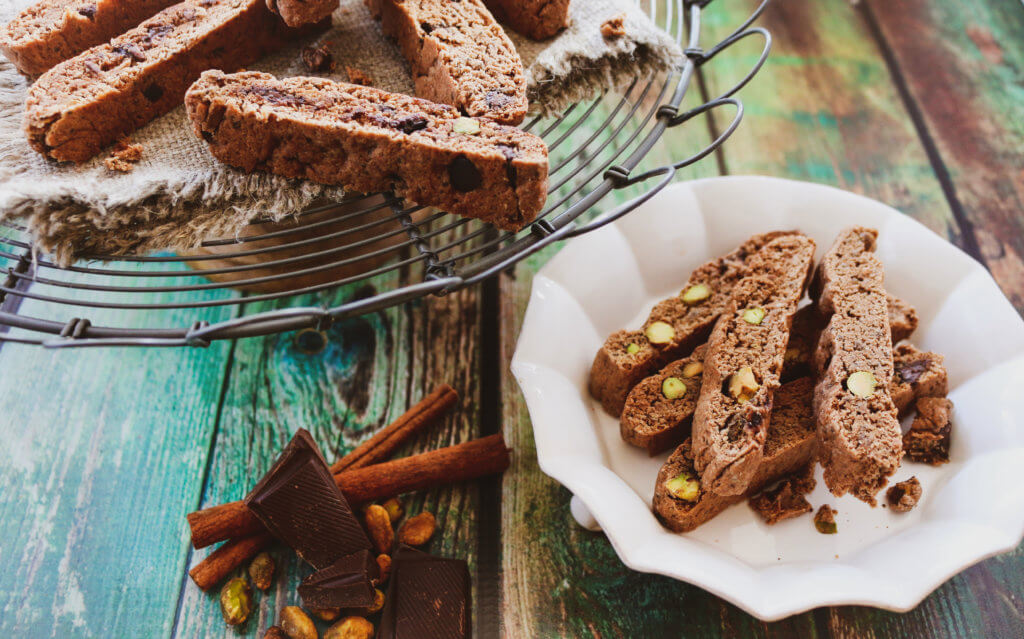18 Non-Diet Tips for Healthy Eating from Top Nutritionists

Skip the fad diets and learn from the experts! Nutritionists share their Top 18 Non-Diet Tips for Healthy Eating.
More and more people are turning to a “non-diet” approach to healthy eating. This means a focus on healthy, sustainable habits, over an overly restrictive, negative, micro-counting (calories, fat, protein, etc.), fad-like viewpoint on your eating style. It’s a wonderful philosophy: make friends with your body, metabolism, and eating pattern, not enemies. In fact, surveys show that more people are shunning “diets” in lieu of healthy eating patterns. They are thinking about which foods they’d like to eat more of, rather than which foods they’d like to eat less of. I love this approach to healthy eating. After all, research suggests that fad diets don’t work, as they are too difficult to stay “on” for the long haul. It’s much more healthful to follow an eating pattern that is livable and breathable—one that you can follow for the rest of your life. A diet that makes you feel healthy, vibrant, happy, and satisfied. A diet that lets you enjoy delicious foods you love. I asked some of the top registered dietitian nutritionists to weigh in on this issue, offering their best “non-diet” advice on how to life and eat healthfully. Here are 18 Non-Diet Tips for Healthy Eating from Top Nutritionists.
Eat and Live Well,
Sharon
18 Non-Diet Tips for Healthy Eating from Top Nutritionists

1. Try Permission vs. Restriction. “Giving yourself permission vs. restricting—foods, amount, time of day. I personally and professionally say that permission changes everything when it comes to the way you think about yourself and your health and food,” says Melissa Burton, RDN, RYT.
2. Add More Leafy Greens. “Make a goal of having at least one big pile of leafy greens a day. It could be a salad, spinach tossed into leftovers, or greens added to sandwiches or wraps. Add them wherever you can!” says Lisa Andrews, MEd, RD, LD, owner of Sound Bites Nutrition.

3. Chew More. “Chew your food more. I tell my clients to aim for 20 chews/bite. Not only does chewing more slow down and enjoy your food, but it helps with overall digestion,” says Chloe Schweinshaut, RD, LDN, CLT, founder of Riverside Nutrition.

4. Pile Up on Veggies. “Look at the proportion of food on your plate. Aim to have vegetable that is equal to or greater than the amount of starch/grain on your plate. This holds for mixed dishes too like casseroles, soups and stews,” says Jean LaMantia, RD.
5. Take Small Steps. “Rather than approach eating with restriction, think about the daily steps you can add to improve your health. Commit to small, realistic changes that get you closer to your goals. Can you drink an extra glass of water? Can you add in a meatless meal tonight? Can you make time for a quick walk during your lunch break?” says Sarah Marjoram, RDN.

6. Plan Ahead. “Roughly plan your menu for the week, and make a grocery list before heading to the store. Prep some food for easy access. It can be as simple as cutting up fruit or veggies to have ready in your fridge for when you need a snack. Or, make your favorite soup, chili or casserole to have lunch ready for a few days. Having these options will save you time, money, and will help you make healthier choices,” says Breanna Woods, MS, RDN.

7. Stay Hydrated. “Drink more water and other unsweetened beverages, like flavored seltzer or teas like green or fruit-based. Staying hydrated throughout the day is important for the body and can help with appetite control,” says Janet Brancato, MS, RDN of My Nutopia.

8. Start Each Day Anew. “Stop punishing yourself for what you ate or didn’t do yesterday and think about health in the long term. Each day is a new chance to make better choices. Good health isn’t an all-or-nothing endeavor, and it’s never perfect. Some days, weeks, and months are better than others when it comes to food choices and exercising,” says Elizabeth Ward, MS, RD of Better is the New Perfect.
9. Learn About Your Hunger. “Listen to your body and learn to recognize when you are hungry and when you are not. Too many times we eat because we are bored, tired, from habit, or a host of other things. Eat when you are hungry and stop when you are only 80% full,” says Diane Welland, MS, RD.

10. Eat Foods Your Body Loves. “See eating as an opportunity to promote your health. Start by focusing on the foods that your body needs and your soul also craves. That’s the sweet spot!” says Julie Lanford, MPH, RD, CSO, LDN of The Cancer Dietitian.

11. Build a Healthy Plate. “At lunch, dinner and even breakfast, think about filling 50% of your plate with produce, 25% with fiber rich carbohydrates, and 25% with plant or animal protein. Use this picture as a foundation from which you build meals, knowing that this combination of macronutrients will help you feel and perform your best,” says Jennifer Hunt, RDN, LD of Healthy Inspiration.
12. Care For Yourself Emotionally. “Before anything else, commit to caring for yourself emotionally. Healthy eating is a pattern, not a rule. Healing your relationship to food begins by making foods morally equivalent first. Carrots = carrot cake. Then, follow your preferences for taste and flavor. As much as possible be open to trying new things. Piquing your interest in new, enjoyable food ideas is motivating and rewarding. That’s how healthy eating becomes a habit,” says Rebecca Scritchfield, RDN, author of Body Kindness.

13. Shift Your Plate to Plants. “When we think about eating, we think in this order: animal protein first, then starch, and then vegetable. Switch the order. Train yourself to think what vegetable you will have and build the meal around it,” says Lorena Drago, MS, RDN, CDN, CDE.

14. Focus on Healthy Foods First. “Start the day by thinking of what all you can eat instead of what you feel like you can’t. Getting in the recommended daily servings of fruits and vegetables, whole grains, healthy proteins, healthy fats, and water helps you have an abundance mindset and feels a lot more positive. It’s really quite a bit of food!” says Alyssa Ashmore, MS, RDN, CSSD, LD of Passionate Portions.

15. Eat More Traditional Foods. “Explore another culture’s traditional cuisine. It’s like stealth health for better eating patterns, since chances are good it will be plant-based with smaller amounts of animal products. Bonus: you won’t make yourself crazy with rules and overthinking things,” says Maggie Moon, MS, RD of Mind Diet Meals.

16. Stick to Whole Foods. “When you eat whole foods in their natural form, you raise your defenses against the likes of heart disease, stroke, high blood pressure, cancer, type 2 diabetes, gastrointestinal diseases, macular degeneration, and much more. Furthermore, you feel better. Your energy levels rise, and your focus increases. You can find whole foods in natural form in every branch of the food kingdom, from sugars to grains to fats to proteins. Your options for healthy eating are abundant—and you might not even know it yet,” says Judith Scharman Draughon, RDN, author of Lean Body Smart Life.
17. Educate Yourself in the Kitchen. “Learn basic cooking skills so you can prepare more home cooked meals,” says Sylvia Klinger, RDN, of Hispanic Nutrition.

18. Savor Your Food and Be More Mindful. “Take time to set the table, even if it’s just for one meal. Sit down, and slow down to truly enjoy the flavors and textures of your food,” says Vandana Sheth, RDN, CDE.
For more healthy, nutrition tips, check out these blogs:
Fuel Your Diet with Fiber with 6 Dietitian Tips
How to Feed Your Plant-Based Kids
5 Dietitian Tips for Fueling Fitness with Plants



I never thought about how chewing more slowly could actually really help you out with your digestion. My sister is thinking about getting in touch with a new dietitian. She wants to lose a lot of weight this year and feel better again.